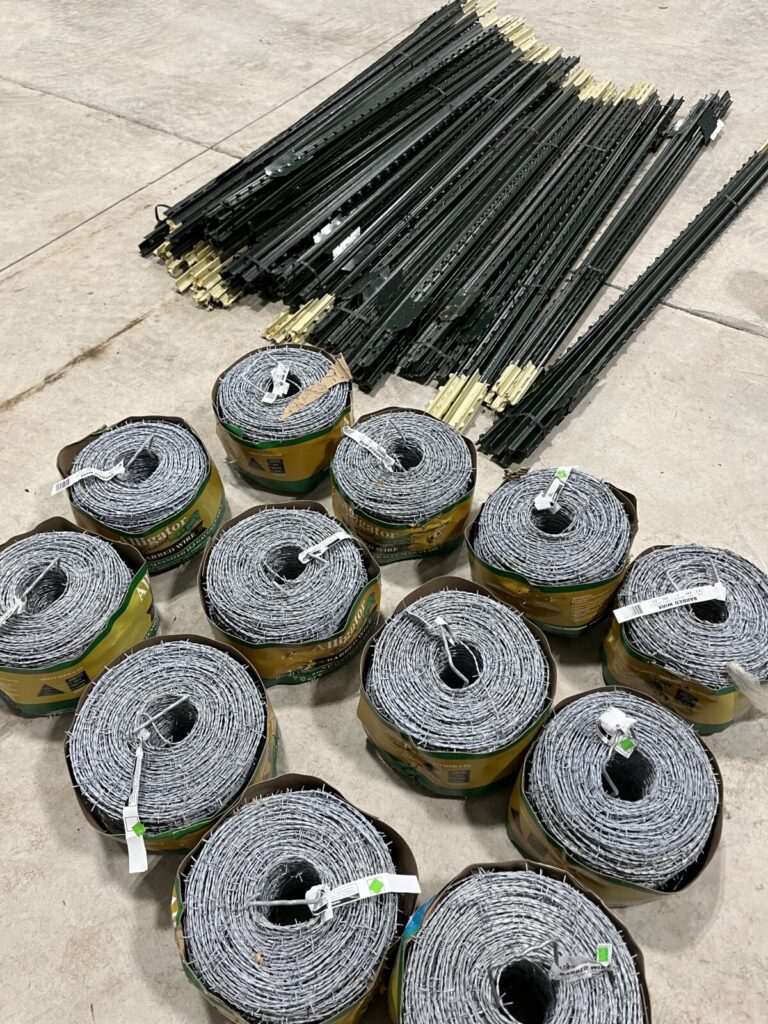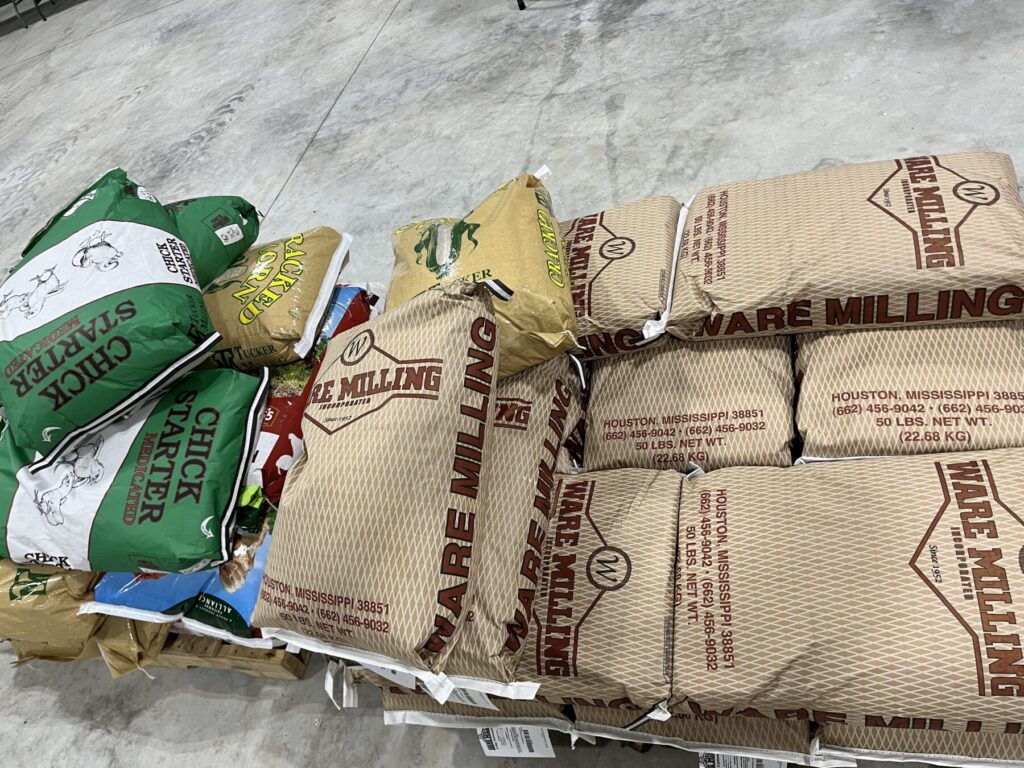Pecan orchards took a hard hit from Helene in Appling county. A third of the mature trees are down, at the least, and near to a quarter of the young trees did not fair to well either. Not only the tree themselves were roughened up but this years crop in Appling county has nearly been completely taken out. In many orchards harvest will not be feasible due to the amount of clean up that is needed to take place and not being able to run harvest equipment between trees. In other orchards that did not experience damage as extreme we still lost the majority of our crop by wind and with immature nuts on the orchard floor it will make harvest just as complicated. Read further in this update for articles by Dr. Lenny Wells and Andrew Sawyer in regard to their thoughts from here after Helene.
Pecans: Harvesting What is Left (Andrew Sawyer)
There is a few questions about dealing with leaning trees and harvesting what is left that I will attempt to answer here. Dr. Wells is working on a blog where he will answer some as well. I spent each day last week getting out with some of you and simply assessing damage. It was quickly determined that for many people, pecans is now the least on their minds. Very heartbreaking. For those on the outside edges of the storm that actually have orchards left and some nuts in the tree, this may provide answer their your questions.
The timing of a hurricane with kernel filling is more severe as nuts in the tree are heavy and generally blow out. For the vast area of damage from Valdosta to Augusta, most of the crop is gone. Growers are thankful if they have trees left. I can now see that where the eyewall traveled is where our orchards are devastated. I am surprised each day when one of you tells me of an orchard with only 4% or 10 % tree loss. Even with minimal tree loss, the crop is pretty much gone. Over the entire area, probably 75% of the crop is gone. In Hurricane Michael, they did not see this much gone and over this wide of an area.
Harvesting Remaining Crop
Ground – Nuts that came out of the shuck and are on the ground are physiologically harvestable and marketable, but unfortunately, not practical. The minimal damage from a hurricane is loss of crop and limbs. Pecan management is machine driven, so by cleaning up limbs, trees, etc. you sacrifice the nuts on the ground. Once you run them over, they are of course no good. The only minuscule options are 1) picking up by hand or 2) using a small backyard harvester (something Savage makes) pulled by a lawn mower to get around the limbs. Both of these are long shots. The loss is high and the damage is widespread through multiple orchards of a single grower that harvesting by hand is not practical.
Tree – The only hope is what is left in the tree. Again, for orchards on the edge of the storm that did not see 75% of their nuts fall, this maybe an option. In the tree, it all comes down to what opens up. If the shucks do not open this week, they likely will not open. This is what is observed in other hurricanes. The nuts that are closest to maturity will be more likely to open up. The nuts far from maturity may not open. Should you irrigate? Generally no, unless we go at least a week without rain. In October our irrigation is cut back to 40% of full capacity. Recall, September irrigation was 100%, then October drops to 40%. The bottom line is not so much water, but will they open? That is up to the shuck itself based on the stress they just experienced.
Righting/ Straightening Trees
This is another question of equal importance. There is more gray area here, however. Whether or not they are covered for trees not fallen all the way down, there is enough knowledge on tree lean and its effect on pecan. If you have a Southeastern Pecan Handbook, there is a section on there about this. The issue with lean is ROOT DAMAGE and It comes down to tree size and degree lean. The older the tree, the more lean affects the roots. So, remember 20 degrees and 45 degrees. For the really large and old trees you see, it only takes 20 degree lean to damage the roots. The good news is that for any tree with <20 degree lean, they do not need to be righted. On the contrary, mature trees (or trunk diameter of >15 inches) leaning >45 degrees from the vertical are best taken out. Do not attempt to right these.
What about those trees in the middle? Younger trees (I would say 1 – 5) can lean very far over, can be braced upright and still produce pecans. These are the trees growers will want to save. Another gray area is a very large old tree that is say 30-degree lean. Likely the root damage will not support leaving this tree in place. One grower once told me, for people, it is like losing a lung and training for a marathon. You can survive without a lung, but you will never be able to exert yourself. Leaned trees can survive, but will not produce. Again, the younger age, the better the survival and righting. Another factor of the decision is variety. Older varieties, less marketable today are better to let go.
FSA Clean Up
The pecan industry has been working on this since last Monday with our Senators and Congressmen visiting damaged areas. Traditionally, you have to contact the FSA before you start clean up. I recommend to contact them first. I have also heard one region, however, where FSA instructed growers to begin clean up immediately. I do not know the FSA situation in all regions. The main thing is legislators are working on clean up funds. Contact your FSA before you start. They will provide further instruction.
https://content.govdelivery.com/accounts/USDAFARMERS/bulletins/3b9bb14
Update on Hurricane Helene Impact on Georgia Pecans
By Dr. Lenny Wells
Young Farmers and Georgia Cattlemens Association Feed and Fence Supplies Donation
Georgia Cattlemen’s Association and Fannin County Young Farmers, received by Kelsey Marchant, has secured a generous donation of chicken and cattle feed and fencing supplies from Pasture Management Systems and from their members for use in the Hurricane Helene affected areas. These supplies have been delivered by leadership of Georgia Cattlemen’s and the Fannin Young Farmers to the Appling County Extension Office, and many other surrounding county extension offices. Please come gather any supplies that will be of use to you, your family, or friends. There is a limited supply, but future donated supplies may be brought at a later date.

